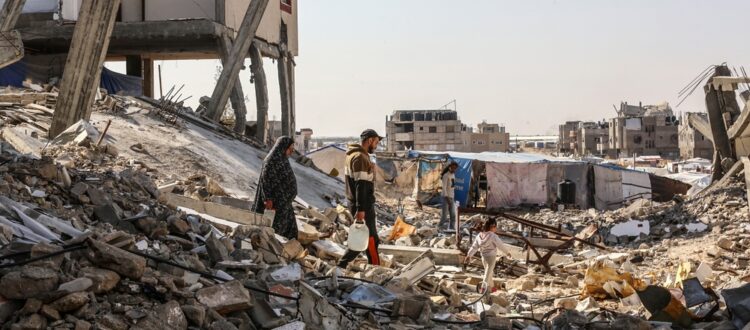DBA Claims and the War in Gaza
The recent escalation in Gaza and surrounding regions has raised new concerns for civilian contractors working in or near active conflict zones. Whether you’re providing logistical support, construction services, security, or intelligence gathering, working in these high-risk areas dramatically increases your exposure to injury and trauma.
If you’ve been harmed physically or psychologically while working under a U.S. government contract overseas, the Defense Base Act (DBA) is designed to protect you. At Friedman Rodman & Frank, we help civilian workers understand their rights and get the compensation they deserve when things go wrong in dangerous deployments like those unfolding in the Middle East.
Working in or Near Gaza: High-Risk Assignments
Many U.S. contractors are currently stationed in the broader Middle East to support government operations indirectly connected to the Gaza conflict. These assignments often involve:
-
Operating in unstable neighboring countries
-
Transporting equipment and personnel near conflict zones
-
Guarding sensitive facilities or infrastructure
-
Working long hours under security threats
The risk of injury is high—not just from direct attacks but also from stress, environmental hazards, and inadequate safety measures.
Types of Injuries Covered Under the DBA
The DBA provides compensation for a wide range of injuries, including:
-
Blast or shrapnel injuries
-
Gunshot wounds
-
Burns
-
Hearing loss or traumatic brain injuries (TBI)
-
PTSD, anxiety, and depression
You may also be covered for illnesses resulting from chemical exposure, contaminated water, or poor medical care in conflict zones.
In addition to injuries caused by physical violence or environmental exposure, emotional trauma from working in or near a war zone can have lasting effects. You may find yourself experiencing difficulty sleeping, flashbacks, mood swings, or trouble adjusting to life back home. These are not uncommon and should not be ignored. The Defense Base Act allows for coverage of mental health treatment, including therapy and medication, if your condition can be linked to your employment. Prompt treatment can be crucial—not just for your recovery, but for strengthening your claim. Early documentation and medical evaluations help demonstrate the seriousness of your condition.
What If the Injury Doesn’t Happen on the Job?
Even if your injury occurred during downtime, in employer-provided housing, or while commuting, you may still qualify for DBA benefits under the zone of special danger doctrine. This legal principle recognizes that when you’re living and working in a conflict zone, nearly every activity carries an increased risk—and the law provides protection accordingly.
Steps to Take If You’re Injured
-
Report the injury to your supervisor as soon as possible.
-
Seek medical care, either locally or upon returning home.
-
Document everything, including your work conditions and any witnesses.
-
File your claim quickly—delays can lead to denials.
-
Contact a DBA attorney to help you navigate the process and avoid common pitfalls.
Why Legal Help Is Essential
Insurance companies often downplay or deny claims from contractors injured in war zones, especially when the injury is psychological or occurred off-duty. A seasoned DBA lawyer will ensure your claim is properly filed, supported by evidence, and not unfairly dismissed by insurers.
At Friedman Rodman & Frank, we represent injured contractors across the globe, including those impacted by the war in Gaza. Our team understands the unique challenges of conflict-zone deployments and stands ready to fight for your rights.
If you were injured while working in or near a conflict zone, call us today at (305) 448-8585 for a free consultation. We’ll help you understand your options and protect your future.

